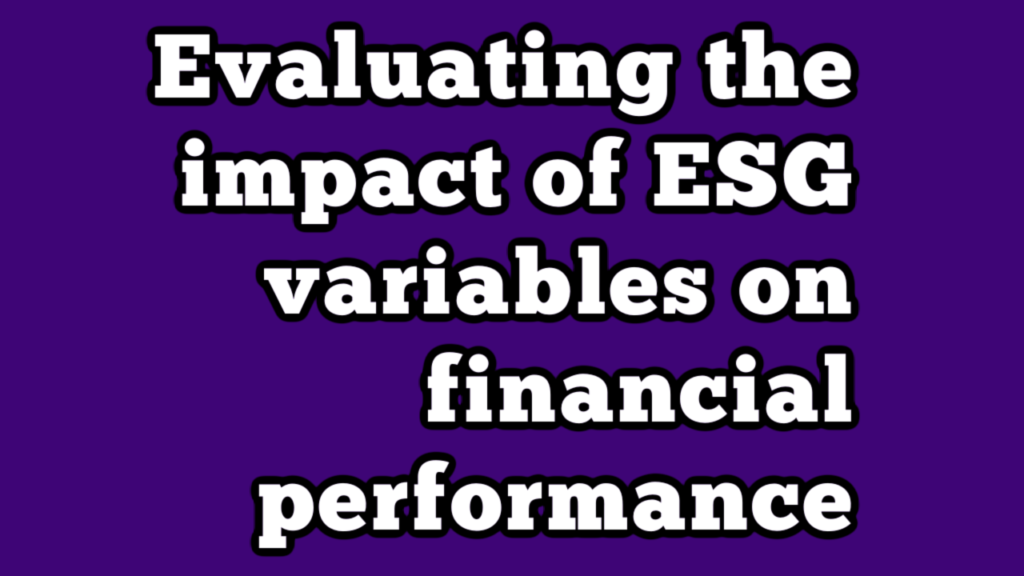Evaluating the impact of ESG variables on financial performance

Here’s a note from Nawar Alsaadi:
I would like to touch on a very interesting research article by Michael Lee and Ikseon Suh, which proposes a novel way to evaluate the impact of ESG variables on financial performance. To understand the causality between ESG factors, and financial performance they divide ESG factors into three distinct and complimentary categories:
1. First-order variables: ESG factors that have a direct, immediate impact on the firm revenue and/or cost structure. (Example: waste reduction, energy conservation, new sustainability growth markets).
2. Mediating variables: association or correlation based ESG variables that eventually flows into a firm financial performance. (Example: employee retention, employee motivation, branding, work culture).
3. Moderating variables: The impact of ESG factors such as controversies is moderated by context such as geography, nature of industry, board representation, and firm size.
The paper proposes an integrated analytical approach encompassing to better understand the link between ESG factors and financial performance:
“We propose that researchers examine the link between ESG conduct and financial performance using a value-enhancing process and integrated modelling approach that encompass our analysis above of first-order variables, mediating variables, and moderating variables. Value creation commences with the ESG conduct that directly affects first-order non-financial and/or financial firm variables such as organizational culture, employee motivation, employee retention, reputation, and branding. These variables, in turn, mediate the link between ESG conduct and the first-order cost variables and revenue variables at an operational level, which in turn, influence financial performance at a higher-order firm-level of analysis. Moderating variables may be considered in the model specification to evaluate whether the value-enhancing process varies by context and/or by firm characteristics.”
The above has implications as to how value ESG factors in an investment and operational context. Companies that get the sustainability culture right (mediating factors) are probably much better positioned to manage and focus on first order variables (for example: seeking sustainability growth markets and managing sustainability impact proactively). Meanwhile, moderating factors, can help investors better understand the potential impact of ESG developments on a company depending on its industry, and where it is located. A proper understanding of these issues, could further inform the engagement function, by having investors for example focus their engagement first on mediating factors that would pave the ground for long term positive impact on first order financial and non-financial variables.
